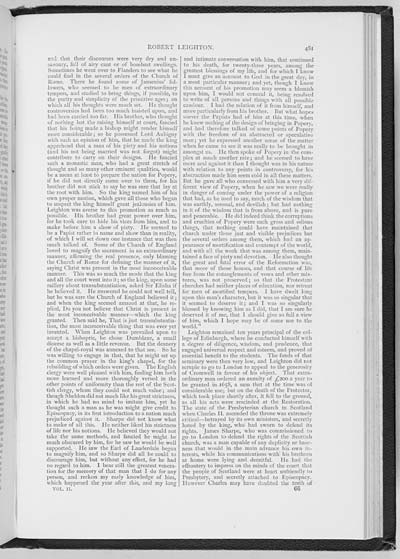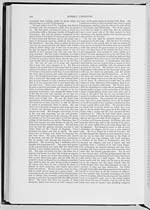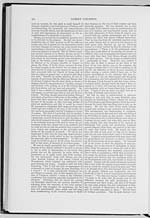481
and that their discourses were very dry and un-
savoury, full of airy cant or of bombast swellings.
Sometimes he went over to Flanders to see what he
could find in the several orders of the Church of
Rome. There he found some of Jansenius' fol-
lowers, who seemed to be men of extraordinary
tempers, and studied to bring things, if possible, to
the purity and simplicity of the primitive ages; on
which all his thoughts were much set. He thought
controversies had been too much insisted upon, and
had been carried too far. His brother, who thought
of nothing but the raising himself at court, fancied
that his being made a bishop might render himself
more considerable; so he possessed Lord Aubigny
with such an opinion of him, that he made the king
apprehend that a man of his piety and his notions
(and his not being married was not forgot) might
contribute to carry on their designs. He fancied
such a monastic man, who had a great stretch of
thought and so many other eminent qualities, would
be a mean at least to prepare the nation for Popery,
if he did not directly come over to them, for his
brother did not stick to say he was sure that lay at
the root with him. So the king named him of his
own proper motion, which gave all those who began
to suspect the king himself great jealousies of him.
Leighton was averse to this promotion as much as
possible. His brother had great power over him,
for he took care to hide his vices from him, and to
make before him a show of piety. He seemed to
be a Papist rather in name and show than in reality,
of which I will set down one instance that was then
much talked of. Some of the Church of England
loved to magnify the sacrament in an extraordinary
manner, affirming the real presence, only blaming
the Church of Rome for denning the manner of it,
saying Christ was present in the most inconceivable
manner. This was so much the mode that the king
and all the court went into it; so the king, upon some
raillery about transubstantiation, asked Sir Elisha if
he believed it. He answered he could not well tell,
but he was sure the Church of England believed it;
and when the king seemed amazed at that, he re-
plied, Do you not believe that Christ is present in
the most inconceivable manner�which the king
granted. Then said he, That is just transubstantia-
tion, the most inconceivable thing that was ever yet
invented. When Leighton was prevailed upon to
accept a bishopric, he chose Dumblane, a small
diocese as well as a little revenue. But the deanery
of the chapel-royal was annexed to that see. So he
was willing to engage in that, that he might set up
the common prayer in the king's chapel, for the
rebuilding of which orders were given. The English
clergy were well pleased with him, finding him both
more learned and more thoroughly versed in the
other points of uniformity than the rest of the Scot-
tish clergy, whom they could not much value; and
though Sheldon did not much like his great strictness,
in which he had no mind to imitate him, yet he
thought such a man as he was might give credit to
Episcopacy, in its first introduction to a nation much
prejudiced against it. Sharpe did not know what
to make of all this. He neither liked his strictness
of life nor his notions. He believed they would not
take the same methods, and fancied he might be
much obscured by him, for he saw he would be well
supported. He saw the Earl of Lauderdale began
to magnify him, and so Sharpe did all he could to
discourage him, but without any effect, for he had
no regard to him. I bear still the greatest venera-
tion for the memory of that man that I do for any
person, and reckon my early knowledge of him,
which happened the year after this, and my long
VOL. II.
and intimate conversation with him, that continued
to his death, for twenty-three years, among the
greatest blessings of my life, and for which I know
I must give an account to God in the great day, in
a most particular manner; and yet, though I know
this account of his promotion may seem a blemish
upon him, I would not conceal it, being resolved
to write of all persons and things with all possible
candour. I had the relation of it from himself, and
more particularly from his brother. But what hopes
soever the Papists had of him at this time, when
he knew nothing of the design of bringing in Popery,
and had therefore talked of some points of Popery
with the freedom of an abstracted or speculative
man; yet he expressed another sense of the matter
when he came to see it was really to be brought in
amongst us. He then spoke of Popery in the com-
plex at much another rate; and he seemed to have
more zeal against it than I thought was in his nature
with relation to any points in controversy, for his
abstraction made him seem cold in all these matters.
But he gave all who conversed with him a very dif-
ferent view of Popery, when he saw we were really
in danger of coming under the power of a religion
that had, as he used to say, much of the wisdom that
was earthly, sensual, and devilish; but had nothing
in it of the wisdom that is from above, and is pure
and peaceable. He did indeed think the corruptions
and cruelties of Popery were such gross and odious
things, that nothing could have maintained that
church under those just and visible prejudices but
the several orders among them, which had an ap-
pearance of mortification and contempt of the world,
and with all the work that was among them, main-
tained a face of piety and devotion. He also thought
the great and fatal error of the Reformation was,
that more of those houses, and that course of life
free from the entanglements of vows and other mix-
tures, was not preserved; so that the Protestant
churches had neither places of education, nor retreat
for men of mortified tempers. I have dwelt long
upon this man's character, but it was so singular that
it seemed to deserve it; and I was so singularly
blessed by knowing him as I did, that I am sure he
deserved it of me, that I should give so full a view
of him, which I hope may be of some use to the
world."
Leighton remained ten years principal of the col-
lege of Edinburgh, where he conducted himself with
a degree of diligence, wisdom, and prudence, that
engaged universal respect and esteem, and proved of
essential benefit to the students. The funds of that
seminary were then very low, and Leighton did not
scruple to go to London to appeal to the generosity
of Cromwell in favour of his object. That extra-
ordinary man ordered an annuity of 7200 a year to
be granted in 1658, a sum that at the time was of
considerable use; but on the death of the Protector,
which took place shortly after, it fell to the ground,
as all his acts were rescinded at the Restoration.
The state of the Presbyterian church in Scotland
when Charles II. ascended the throne was extremely
critical�betrayed by its own ministers, and secretly
hated by the king, who had sworn to defend its
rights. James Sharpe, who was commissioned to
go to London to defend the rights of the Scottish
church, was a man capable of any duplicity or base-
ness that would in the main advance his own in-
terests, while his communications with his brethren
at home were lying and deceitful. He had the
effrontery to impress on the minds of the court that
the people of Scotland were at heart unfriendly to
Presbytery, and secretly attached to Episcopacy.
However Charles may have doubted the truth of
66

![]() Universal Viewer |
Universal Viewer | ![]() Mirador |
Large image | Transcription
Mirador |
Large image | Transcription
![]()

